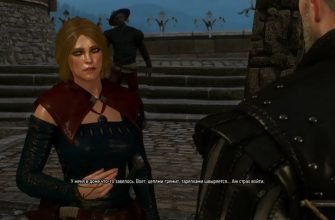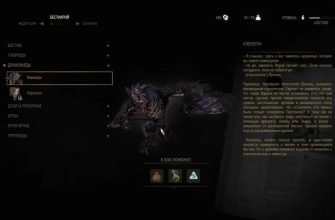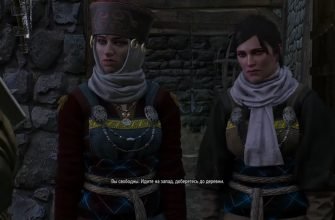In the vast world of The Witcher 3: Wild Hunt, every choice made by Geralt of Rivia can significantly impact the storyline and its various outcomes. One such pivotal moment in the game revolves around Black Marie, a character whom players must decide whether to kill or spare. This decision significantly affects both the immediate game sequence and certain aspects of the broader narrative, leaning heavily on the player’s moral compass and understanding of the consequences. Let’s delve into the details, analyzing the ramifications of choosing to kill Black Marie or letting her live, and the resultant consequences of these choices.
Background of Black Marie
Black Marie is a character imbued with layers of ambiguity and moral complexity. She exists within a world where defining the line between good and evil is often nuanced and blurred. Players encounter her within a context that raises immediate questions about intent, morality, and justice. To understand the implications of your choices regarding Black Marie, it’s essential to grasp her full backstory and the nature of her interactions with Geralt.
Understanding the Encounter
The encounter with Black Marie occurs as part of a questline that involves myths, tragic backstories, and situations that test Geralt’s moral decisions. Upon meeting her, players may perceive a sense of foreboding or reason based on prior events leading up to this point. Conversations and discoveries made using Geralt’s Witcher senses can provide additional layers of context, enabling a richer understanding of her character.
Choice Dynamics: Killing Black Marie
Opting to kill Black Marie is a decision that some players might choose due to various in-game factors or perceived threats. The pros and cons of this choice depend heavily on the player’s approach to moral dilemmas in The Witcher 3. Here is a breakdown of what happens when you kill Black Marie:
- Immediate Consequences: Geralt may experience an immediate sense of resolution, especially if certain dialogues and events had positioned Black Marie as a threat. This act can lead to a temporary sense of justice or elimination of a perceived danger.
- In-Game Rewards: Upon killing her, players might receive certain rewards in the form of experience points, items, or financial gains. These rewards, while valuable in the short term, may come at the cost of longer-term narrative cohesion.
- Narrative Impact: The death of Black Marie can trigger a series of events that alter the storyline. NPCs related to her might react to her demise, leading to potential side quests or alterations in their behaviors. The world may show signs of shift and change based on her absence.
Choice Dynamics: Sparing Black Marie
Alternately, players can choose to spare Black Marie. Doing so opens up a different set of consequences, often shaped by nuanced storytelling and the intricate web of relationships within the game. Here are the aspects one must consider when Black Marie is allowed to live:
- Immediate Consequences: Sparing her might leave Geralt with lingering doubts or questions. Players may explore further dialogues that offer deeper insights into why sparing her was potentially beneficial.
- In-Game Rewards: While immediate material or financial rewards might be minimal, sparing her can lead to unique storylines, future assistance from her or related characters, and expanded narrative arcs providing richer gameplay.
- Narrative Impact: Black Marie’s survival opens opportunities for further interactions, additional quests, or impactful story developments. Other NPCs may react to or acknowledge her continued existence, enhancing the immersive experience.
Impact on the Broader Storyline
Both choices, killing or sparing Black Marie, contribute to the intricate tapestry of The Witcher 3‘s world. The player’s decision influences not only immediate events but also potential future key plot points, interactions with other characters, and the overall tone of the narrative. Here’s a table summarizing the key consequences of each choice:
| Action | Consequences |
|---|---|
| Kill Black Marie |
|
| Spare Black Marie |
|
Role of Morality and Player Perspective
The Witcher 3 heavily revolves around player choices, which can be informed by personal beliefs, playstyles, and moral considerations. Each player may weigh the decision to kill or spare Black Marie differently based on their unique perspectives on justice, mercy, and pragmatism in the gaming world. This not only provides a deeply personal gaming experience but also contributes to the overall depth and replayability of the game.
Revisiting Choices and Their Long-Term Effects
The significance of player-made choices in The Witcher 3 is further highlighted through long-term effects observable as the game progresses. Revisiting the consequences of sparing or killing Black Marie can provide players with meaningful insights and more profound appreciation of their actions. In future playthroughs, these choices may substantially alter the gameplay, enriching the player experience.
Conclusion
In conclusion, the decision to kill or spare Black Marie in The Witcher 3: Wild Hunt offers a compelling dilemma that encapsulates the complex moral universe that the game so masterfully crafts. Both choices provide unique rewards and narrative impacts, ensuring that each playthrough can unveil new layers of story and character development. Ultimately, the decision should align with the player’s interpretation of Geralt’s character and their broader narrative goals, making each journey through the game distinct and personally significant.









